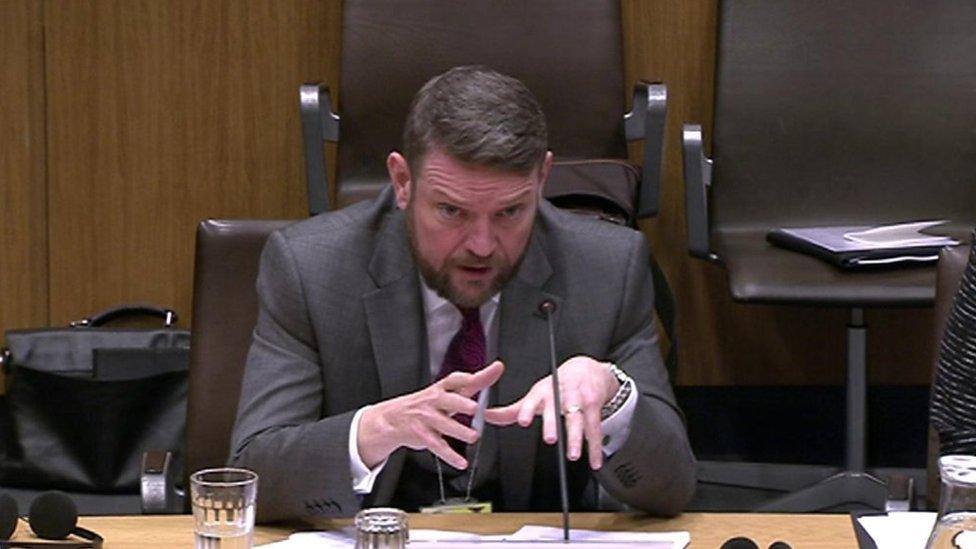Missing records hamper NHS complaint probes, watchdog says
- Published
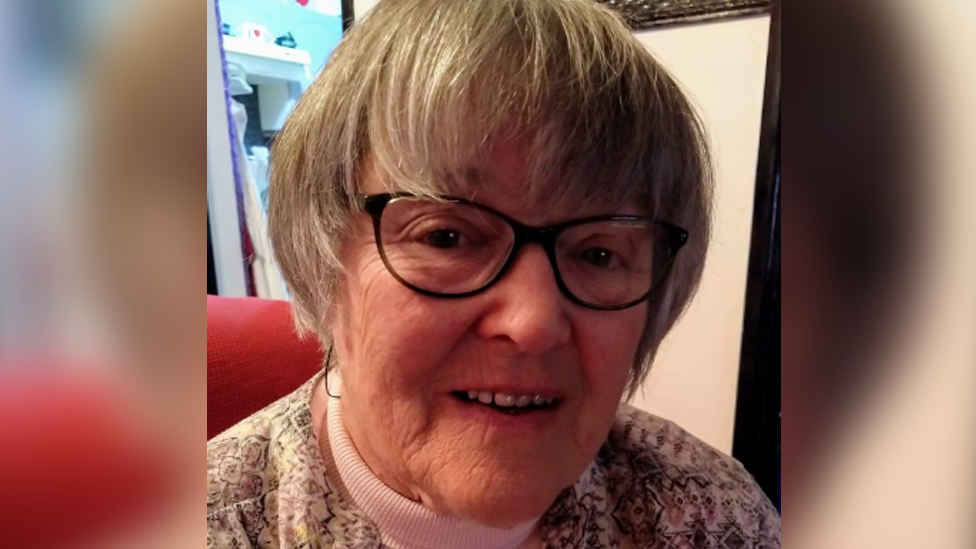
Patricia Barry says she has lost her trust in people in authority after her medical records went missing
Complaints about NHS care cannot always be investigated properly because of medical records going missing, the public services watchdog has said.
Ombudsman Nick Bennett said many people were left "suspicious" and thought there was a "darker motivation".
One woman whose notes went missing said she no longer trusted what doctors said and had lost faith in NHS transparency.
The Welsh NHS Confederation said staff were "committed to the highest standards of care".
In a report called Justice Mislaid: Lost Records and Lost Opportunities, Mr Bennett found 70% of 17 cases he looked at in Welsh NHS hospitals and care settings could not be properly investigated because of lost documents.
Patricia Barry, 82, from Monmouth, only found out her notes had gone missing when she raised a complaint with the ombudsman about the care she received.
In 2017, she had surgery for an infected cyst in her neck at the Royal Gwent Hospital in Newport.
But she had to be rushed back into A&E and have further surgery after the wound started weeping and she became feverish.
She put in a complaint but it was not until nearly two years later she learned the clinical notes from both the surgeries had gone missing.
"In my case, I honestly believe that they used the excuse of lost documents. I can't prove it. I think they decided it would be better for them to just own up to being careless and losing things," she said.
"I feel angry, suspicious and I don't trust people in authority much any more. To use a rugby analogy, it reminds me of a team that gives away a penalty to avoid a try being scored.
"I used to be a great advocate of the NHS - but now I have completely lost confidence, not in their ability but in their transparency. I no longer trust what the doctors say and that is shattering to me."
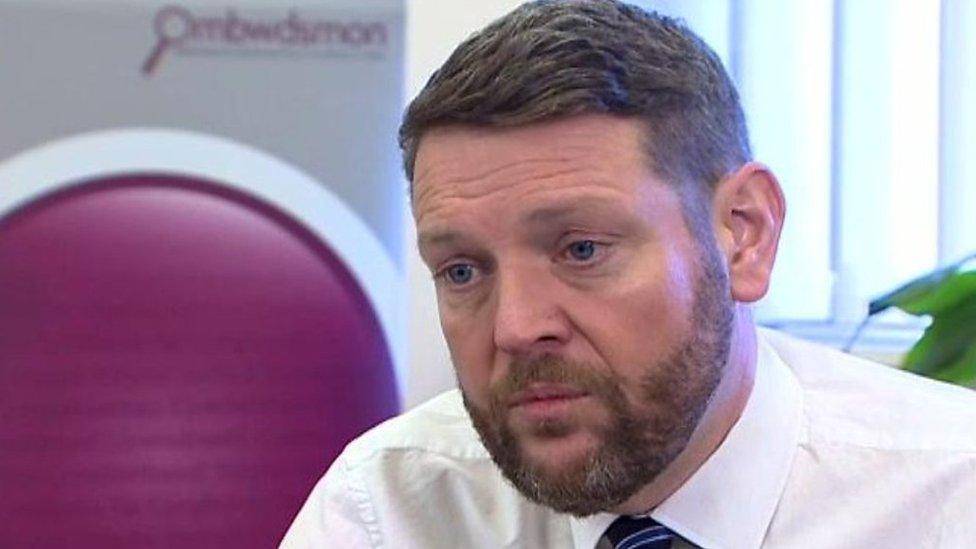
Ombudsman Nick Bennett said lost records left people unable to grieve properly
An Aneurin Bevan University Health Board spokesman said: "We acknowledge the ombudsman's findings and apologise to any of our patients who have been affected by lost medical records.
"We believe that the move to capturing patient information in a digital format will significantly reduce the use and potential loss of paper records."
Mr Bennett said lost records could have a very negative impact on complainants: "There are examples in this report where people have felt unable to grieve because of the impact that this mismanagement has had.
"And then of course it can leave a suspicion, a sense that there's been a darker motivation for not finding this data."
Mr Bennett said it was not possible to tell the scale of the problem at the moment but new powers coming in next year would mean data would have to be collected by health boards.
Examples in the report included:
Consultants mistakenly discussing another patient's medical records with a grieving daughter following her father's death
a health board not having any record of a woman giving birth at a hospital apart from a copy of a prescription in its pharmacy
The report calls for better record management and training, as well as a better system for reporting lost files.
Darren Hughes, director of the Welsh NHS Confederation, said: "Ensuring that medical records are properly maintained and only accessed appropriately is a key part of this and we understand the distress and upset that can be caused.
"When care does not meet the high standards, as in some of the cases highlighted in this report, we must make sure action is taken to put things right."
- Published19 February 2020
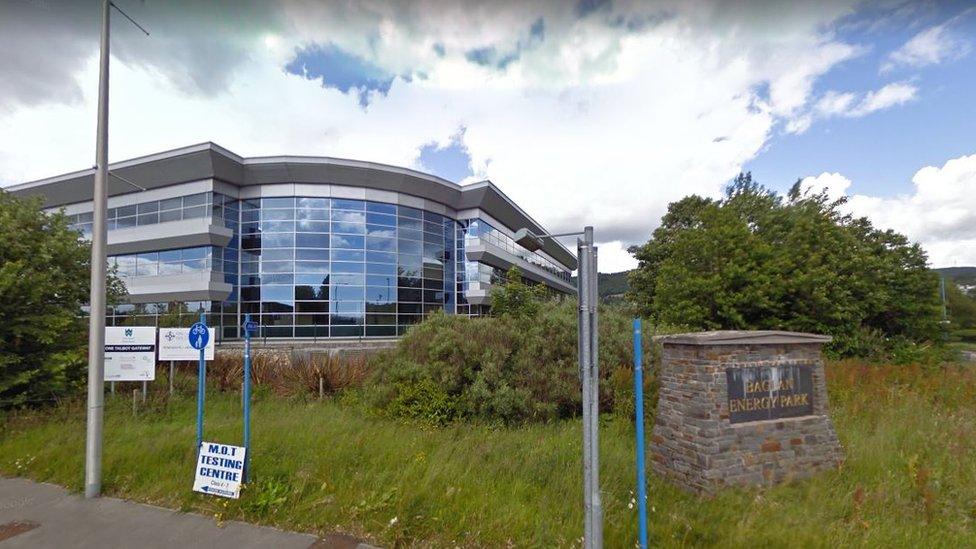
- Published6 February 2020

- Published19 June 2018
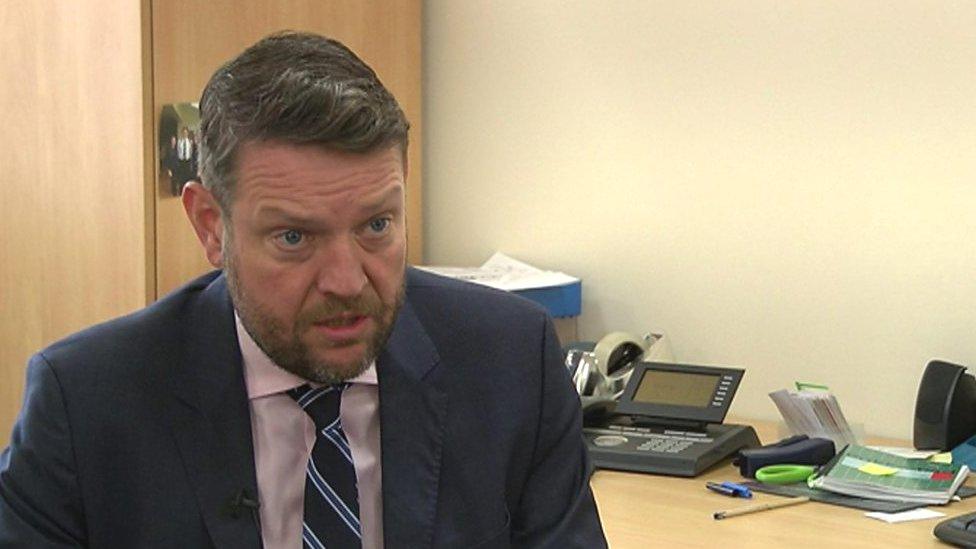
- Published7 December 2017
